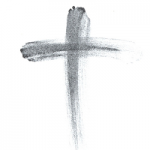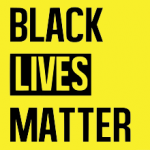By Katherine Ellis
The church is currently in the season of Lent. As together we journey toward Resurrection Sunday, one of the markers of this liturgical season for many Christians is fasting.
I was a teenager around the time it became trendy for some Baptist churches to acknowledge and participate in the Lenten season. I remember deciding to give up sweets one year and social media another. I assumed the purpose of fasting was to ensure everyone around me knew just how pious and miserably deprived of chocolate I was.
I was mistaken.
The season of Lent is described as a time of self-examination and repentance. We are invited to come face to face with the grime of our humanity. As Christians, we are called to confess and repent from the things we have done and left undone.
The Book of Common Prayer uses this language “done and undone” in its confession stating,
Most merciful God,
we confess that we have sinned against thee
in thought, word, and deed,
by what we have done,
and by what we have left undone.
We have not loved thee with our whole heart;
we have not loved our neighbors as ourselves.
We are truly sorry and we earnestly repent.
For the sake of thy Son Jesus Christ,
have mercy on us and forgive us;
that we may delight in thy will,
and walk in thy ways,
to the glory of thy Name.
Amen
Before hearing this prayer of confession, I mostly imagined sin to be those evils I actively do. This confession, however, acknowledges that my inaction also renders me guilty.
As we consider our neighbors, both near and far, there is much to humbly confess. May we lament that we have failed our brothers and sisters who live in fear and have been pushed further and further into the margins. We have remained silent and inactive when our voices and actions were needed.
The prophet Isaiah speaks of fasting telling us:
Is not this the kind of fasting I have chosen:
to loose the chains of injustice
and untie the cords of the yoke,
to set the oppressed free
and break every yoke?
Is it not to share your food with the hungry
and to provide the poor wanderer with shelter—
when you see the naked, to clothe them,
and not to turn away from your own flesh and blood?
Isaiah 58:6-7
This Lenten season it may be easiest to give up chocolate or soda in attempt to curb our indulgent habits and transform our bodies. Yet, Isaiah tells us “Look, you serve your own interest on your fast day” (Isaiah 58:3).
May this condemnation continue to haunt God’s people. It is often easier to turn inward and address our own pesky personal vices instead of acknowledging the plight of our neighbor and our complicity in injustice.
Church, may we fast from comfortableness this Lenten season.
May we fast from blindness as we see those in our midst whose oppression we are responsible for—if not by what we have done, then surely by what we have left undone.
May we fast from indifference as many persist in turning away the vulnerable and marginalized.
May we not merely seek to transform our own bodies through fasting, but may our fasting transform the bodily realities of those suffering in our midst.
Katherine Ellis is a CBF Leadership Scholar and is currently pursuing an M.Div. from Princeton Theological Seminary in Princeton, N.J. She received her B.A. in Religion from Baylor University in Waco, Texas, and formerly served as Youth and Community Pastor at Ladywell Baptist Church in Livingston, Scotland.










